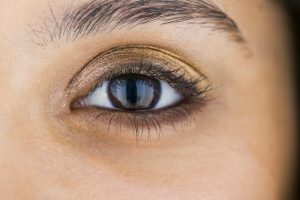 It may be March, but we aren’t out of the woods yet when it comes to cold weather. While many may wish for winter to pass by so they can ditch the parkas, there’s an even more important reason to get out of the cold. Your eyes. Harsh winds and cold air can damage your eyes, causing a painful condition known as dry eye syndrome. Want to know how to avoid it? Continue reading to discover what causes painful dry eyes – and what you can do to protect yourself this winter.
It may be March, but we aren’t out of the woods yet when it comes to cold weather. While many may wish for winter to pass by so they can ditch the parkas, there’s an even more important reason to get out of the cold. Your eyes. Harsh winds and cold air can damage your eyes, causing a painful condition known as dry eye syndrome. Want to know how to avoid it? Continue reading to discover what causes painful dry eyes – and what you can do to protect yourself this winter.
When your eyes are unable to produce enough tears, or when the moisture evaporates too quickly, they can be left feeling sore, dry, and itchy. The risk of experiencing dry eye syndrome increases during cold season, as harsh weather conditions can increase the rate at which your tears evaporate. Specialists recommend decreasing your alcohol and caffeine intake, as well as wearing sunglasses when out in the elements to protect your eyes from the cold and wind.
Advertisement
Dry eye syndrome can cause complications worse than just pain and irritation. Without enough moisture, your eyes are unable to properly flush out any dust, debris, or bacteria – meaning, perfect ground for the development of an eye infection. Your eyes also produce tears as a protective response to perceived threats such as grit and dirt. A disruption to this process can result in blurred vision and damage to the cornea that is not only extremely painful, but can harm your eyesight permanently.
Take precautions this winter and protect your eyes by staying hydrated, avoiding alcohol and caffeine, and wearing sunglasses in cold or windy conditions – dry eye syndrome can leave your eyes vulnerable to threats that may cause lasting damage.
Related: Dry eyes and seasonal allergies linked, treat dry eyes naturally with home remedies
